What Charles River Laboratories Doesn’t Want You to Know

You’re excused if you’ve never heard of Charles River Laboratories. Despite annual revenue of nearly $4 billion, the 75-year-old multinational company based in Massachusetts likes to keep a low profile—because it trades in death. Misery is its currency.
Charles River is the world’s largest breeder of animals for use in experiments, supplying one of every two animals used in experimentation. As one of the largest importers of monkeys into the U.S., the company is partially responsible for emptying the world’s forests of long-tailed macaques—a favorite monkey species among experimenters and one that has been added to the endangered species list.
Charles River also maims and kills hundreds of thousands of other animals in painful experiments for companies that produce industrial chemicals, pesticides, food additives, and pharmaceuticals.
It doesn’t want you to know any of this, so we’re putting all the relevant information right here.
Force-Feeding Animals, Sometimes to Death
Charles River conducts painful tests on animals for other companies, often force-feeding them test substances through the gruesome “gavage” process, in which experimenters thrust a thick plastic tube up the nose and down into the stomach of an animal.
The gavage process does the following:
- Causes animals to choke, gag, and sustain bloody noses
- Can cause more harm or even kill an animal
- A gavage error at Charles River caused a rabbit pain and distress and eventually killed her.
- After being subjected to gavage, a monkey was seen vomiting and wouldn’t eat. She was found dead, and necropsy findings were consistent with a gavage error.
- Another monkey who was used in a chronic oral toxicity test also died because of a gavage error.
Other Tests Sometimes Cause Bleeding Genitals
Charles River also runs tests of experimental chemicals that are smeared onto animals’ shaved skin, and they’re forced to inhale toxic substances.
- The effects: Primates may endure severe abdominal pain, diarrhea, convulsions, seizures, paralysis, or bleeding from the nose, mouth, and genitals before they ultimately die or are killed.
- No pain relief: It’s uncommon for animals in these tests to receive any pain relief because it might interfere with the data. The wishes of the experimenters are always placed above the basic needs of the animals.

How Many Animals Does Charles River Torment, Exactly?
Federal reports indicate that in 2022, Charles River used the following:
- 16,460 nonhuman primates
- 12,531 rabbits
- 9,099 dogs
- 4,815 guinea pigs
- 2,739 hamsters
- 2,086 pigs
- 207 cats
- 16 sheep
- Hundreds of thousands of other animals who aren’t required by law to be counted
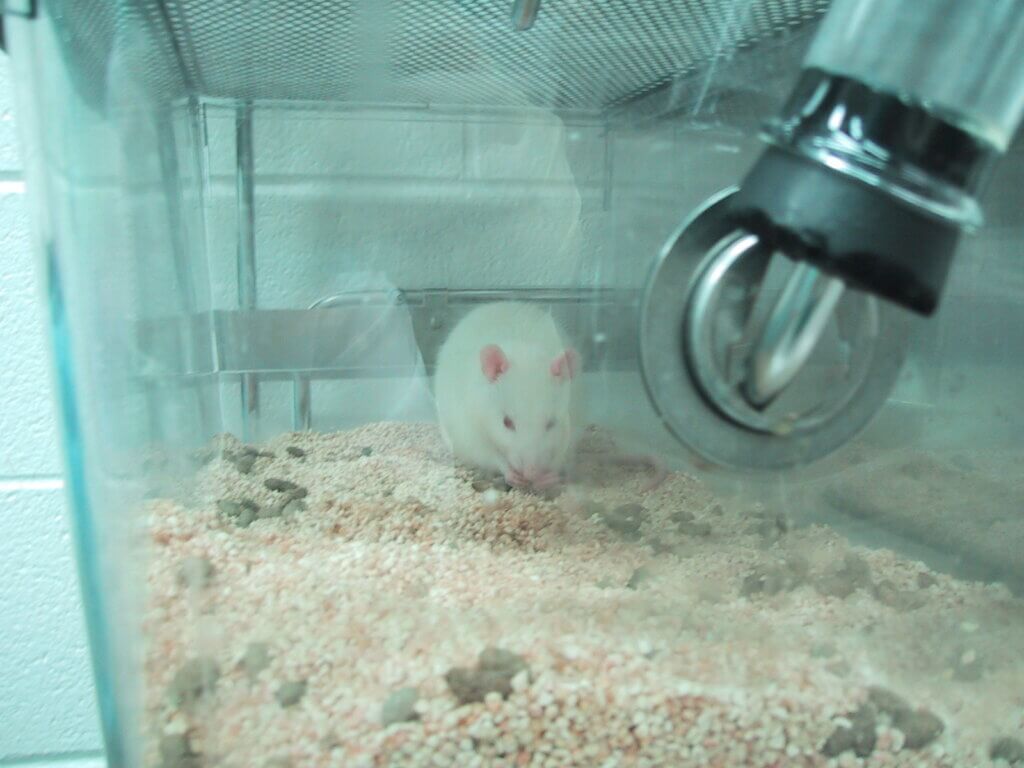
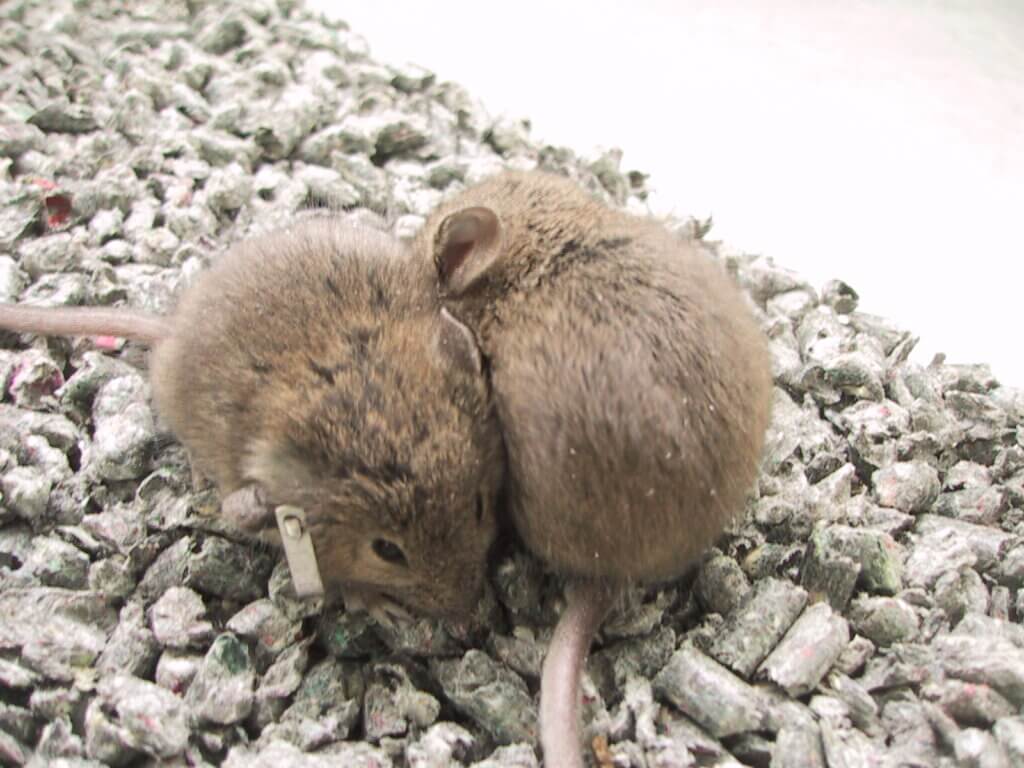
Charles River kept an additional 2,471 nonhuman primates, 214 guinea pigs, 55 dogs, 55 pigs, 53 hamsters, and 39 rabbits on standby for experiments, according to its annual report.
Violating Federal Law Like It Doesn’t Exist
Charles River’s violations of federal animal welfare law read like a criminal indictment: inadequate veterinary care, failure to provide pain relief, inadequate housing, shoddy surgical methods, and failure to investigate non-animal alternatives to experiments.
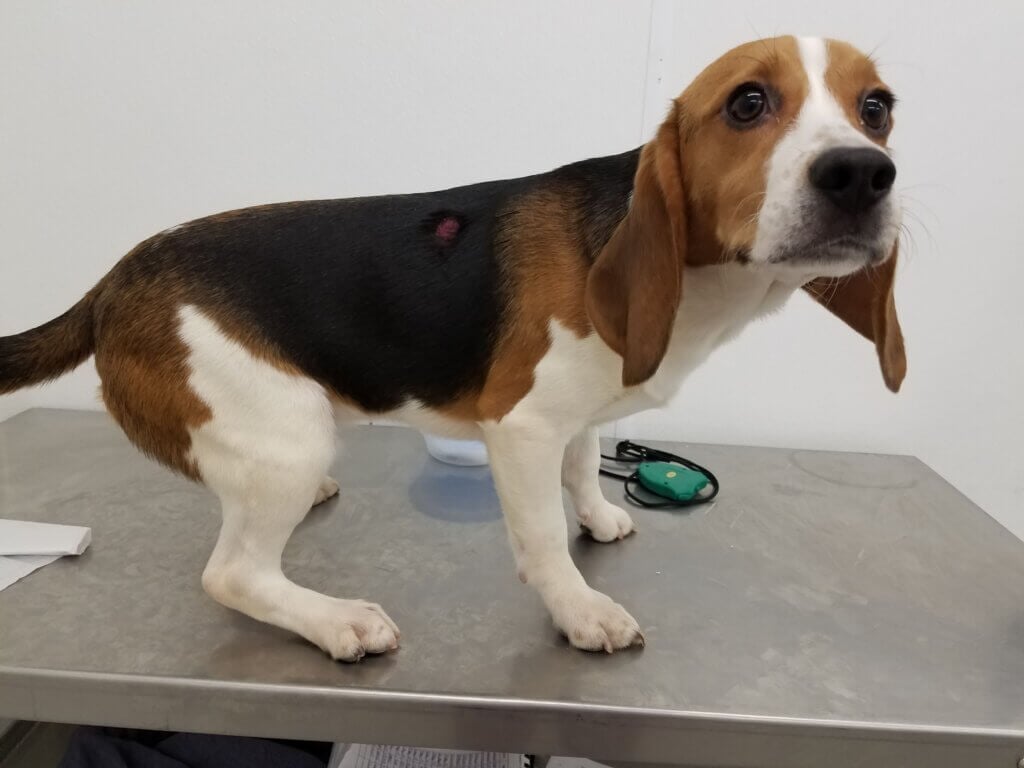
Violations include the following:
- Rabbits with skin lesions 4.5 inches deep received no medical care.
- Unqualified personnel severely injured monkeys’ fingers, forcing their amputation.
- No one noticed a malfunctioning thermostat and 32 monkeys baked alive.
- Staff ran a cage with a monkey trapped inside through a high-temperature washer, scalding the animal to death.
Charles River’s full rap sheet of federal violations can be read here.

Bleeding Horseshoe Crabs for Inferior Tests
Charles River is also responsible for inflicting pain and distress on horseshoe crabs—while also decimating fragile ecosystems. The company contracts with fishers to capture and bleed the crustaceans in order to use the animals’ blood in tests for microbial contamination in vaccines, drugs, and medical devices.
But here’s the thing: There’s a better way. Testing with human blood is more effective at detecting toxins that affect humans and eliminates the need for such barbaric treatment of horseshoe crabs. The horseshoe crab blood test can only identify a specific type of bacteria, while the human blood test can detect all major types of bacteria, viruses, fungi, and other agents that cause fevers, known as pyrogens. By using the blood drawn from consenting adults or cultured human blood cells when fresh blood isn’t available, we can ensure greater safety and protection.
The superiority of the human blood test has been established since the early 2000s. In Europe, it has become the gold standard for determining microbial contamination in drugs. While Europe is leading the way by embracing alternatives to animal testing, the U.S. Food and Drug Administration has been slower to adopt new methods. PETA scientists are working with government agencies and companies to eliminate the use of animals in testing, including in pyrogen testing.
Pushing Monkeys to Extinction for Profit
Every year, Charles River imports into the U.S. thousands of monkeys who have been taken from their families in nature or bred on decrepit factory farms in Mauritius—an island nation off the southeastern coast of Africa—and in Southeast Asia.
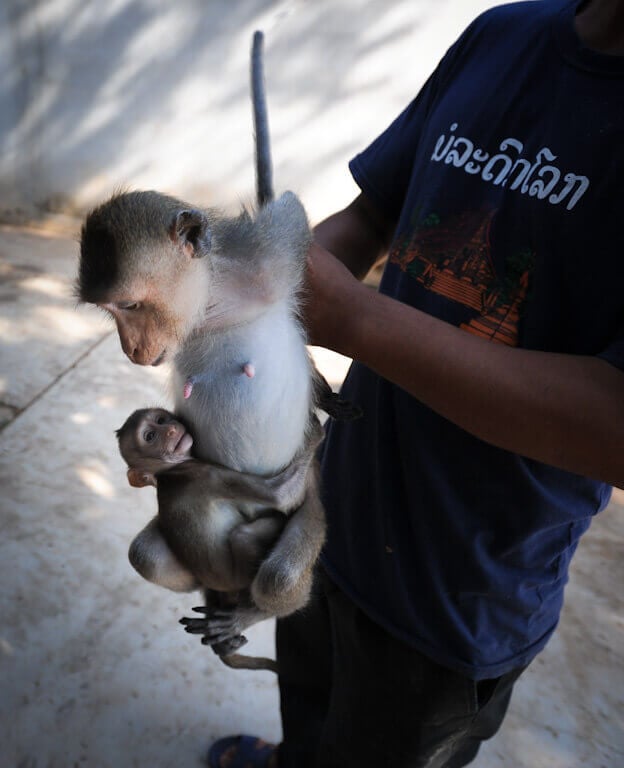 © Jo-Anne McArthur / We Animals Media
© Jo-Anne McArthur / We Animals Media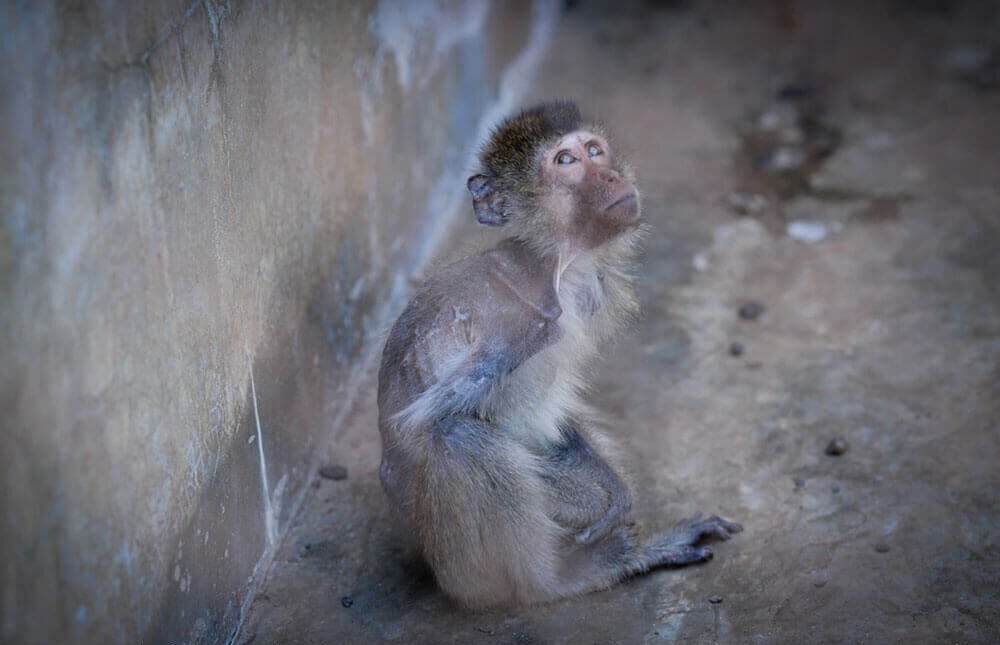 © Jo-Anne McArthur / We Animals Media
© Jo-Anne McArthur / We Animals MediaCharles River chiefly imports long-tailed macaques, an endangered species whose dwindling numbers are in part the fault of the U.S. experimentation industry, which Charles River gladly supplies. Recent reports indicate that there will soon be no wild monkeys left in Cambodia, Laos, or Vietnam.
Complicity in an Illegal Monkey Trade?
Charles River supports a violent and secretive industry that fuels the illegal trade in endangered monkeys, a billion-dollar industry consisting of trappers, international breeders, commercial importers, airlines, and U.S. domestic trucking companies. As the price “per tail” reaches into the thousands, the experimentation industry is increasingly turning a blind eye to monkey laundering.

How the Monkey-Abduction Pipeline Works
- In the forests of Cambodia, Indonesia, Laos, Mauritius, and Vietnam, hunters trap mother monkeys, pry their babies away and stuff them into bags, and cram the mothers into crates, along with any of the other troop members who have survived capture.
- Some are sold directly to U.S. laboratories.
- Others first end up on commercial monkey factory farms, where mothers are forced to live and breed in squalid conditions.
- The monkeys are then crammed into small wooden crates and loaded onto planes for a dark and terrifying flight, wallowing in their own urine and feces.
- Once in the U.S., the monkeys are trucked to quarantine sites—sometimes across hundreds of miles on public roads.
Confinement Takes a Physical Toll, and Health Officials Know It
The extreme stress of confinement and transportation wreaks havoc on monkeys’ immune systems. The Centers for Disease Control and Prevention knows that imported monkeys arrived infected with tuberculosis and other “unknown/undetermined” viruses, some of which cause diarrhea so violent that it sheds the lining of the gut, according to documents obtained by PETA.
Hundreds of monkeys imported into the U.S. between 2019 and 2021 had gastrointestinal infections and Ebola-like viruses, malaria, and other nasty diseases that are easily transmittable to humans, documents show.
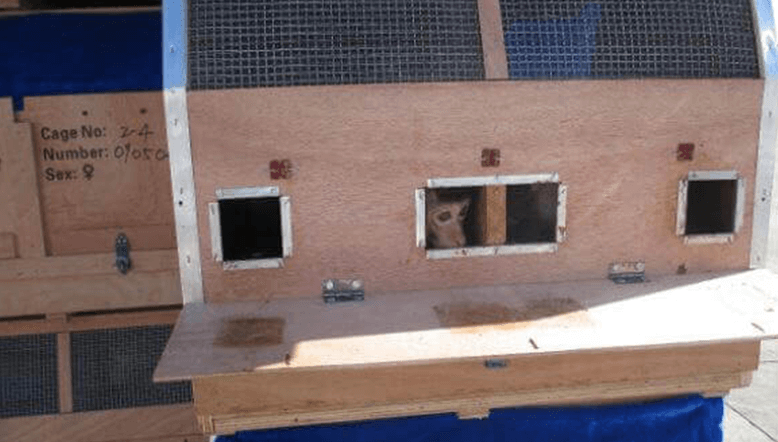
Take Action for Monkeys
Join us and take action below to urge the U.S. Department of Health and Human Services to ban the importation of monkeys to U.S. laboratories now.
